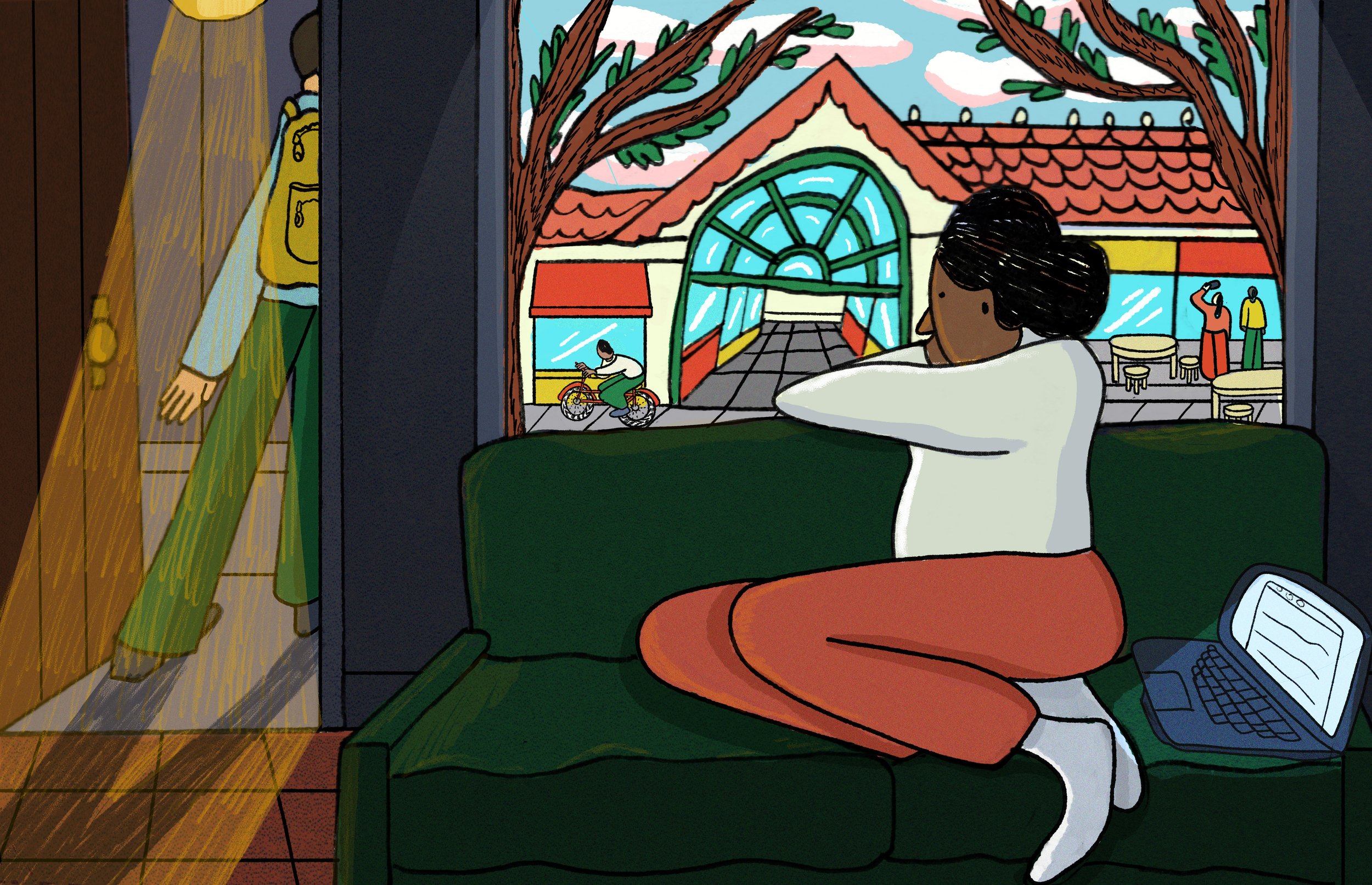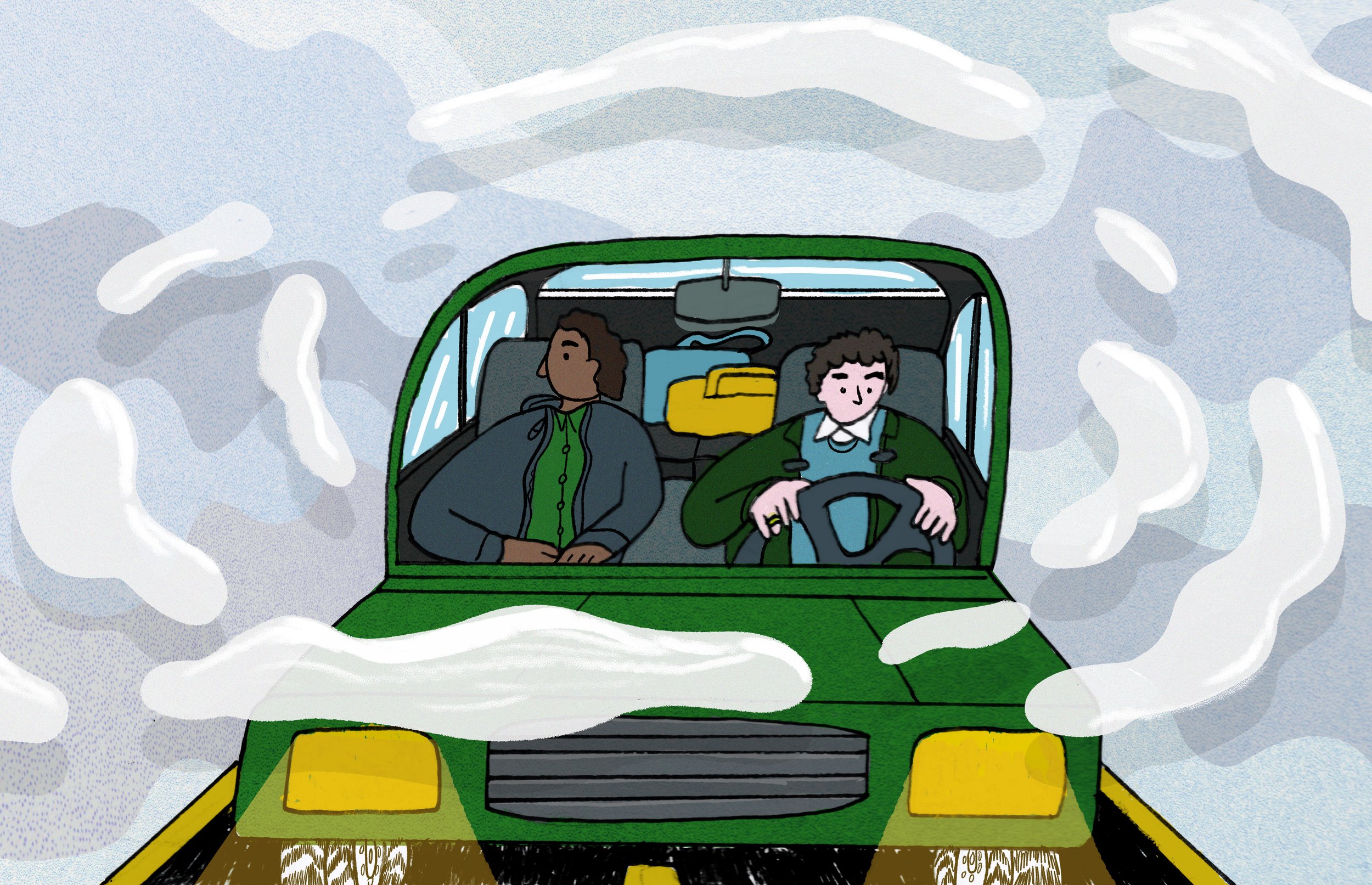9:15 p.m. in Pensacola, Florida

9:15 p.m. in Pensacola, Florida is inescapable pink. It’s a strange, bright shadow, a sheen of flamingo and taffy across our skin and eyes. We walk through the spray of a busted fire hydrant, past squat palm trees and old houses, stucco and cinder block, painted pastel oranges and blues. The driveways are lined with monkey grass, alive and wild beside the half-dead front yards. Everything is slow, so desperately slow. A soft salt wind slides through the choking heat, a whisper of the Gulf shore, one mile away. I breathe it all in. My dog, Nollie, shakes off the hydrant water. His metal chain clangs against the wet concrete.
Nollie and I make it to our old home. My little brother and I called it the good house when we moved to this part of town five years ago, on account that it’s a hundred years newer than our first family home. But the good house was destroyed three days ago when a small tornado shot through the back wall, collapsing the whole structure backwards. From the front yard, it looks the same as it always had, the destruction hidden by a white painted brick face, the huge magnolia tree dumping soft white petals across the dark, dirt yard. Thank God it’s only one story, a neighbor says, his hand in his back pocket, his island print short-sleeve, unbuttoned, billowing against his bare chest. He shakes his head and spits into a slim fig tree my dad and I planted in the front yard. Lucky y’all left when you did, he says. Luckier that my dad had passed years before this storm hit. Dad insisted on staying home during the hurricanes that plowed through the Florida panhandle every year to watch the dogs and have time to think. Once, we sat together by the front windows as a tricycle blew down the street without a rider, its little pedals turning under a swirl of sticks and leaves.
The storm three days ago was too strong to sit through. It was thrashing and monstrous, destroying whole neighborhoods, the historic downtown, and the beach my family has returned to for the last two hundred years. Doesn’t matter if you have a house, the beach’ll always be home, Dad said, the same way other people say we’ll always have each other. But what happens when the air itself tears the beach in half, the dune plants dead and scattered, the sand boobytrapped with piles of broken wood and shattered glass?
This is a state of emergency. Soon, the National Guard will march through the streets, shrieking curfew, curfew, shifting their rifles from one shoulder to the other. Soon, Nollie and I will bury ourselves in the hot dark of any house with a bare floor and solid roof. We’ll fall asleep listening to the giant cockroaches and tiny rats scurry through the walls. We’ll fall asleep hoping they stay there, praying to the invisible lines that connect us, living creature to living creature: This is my place and that is your place.
About the Author
Illustration by Jane Demarest.
Edited by Tusshara Nalakumar Srilatha.










